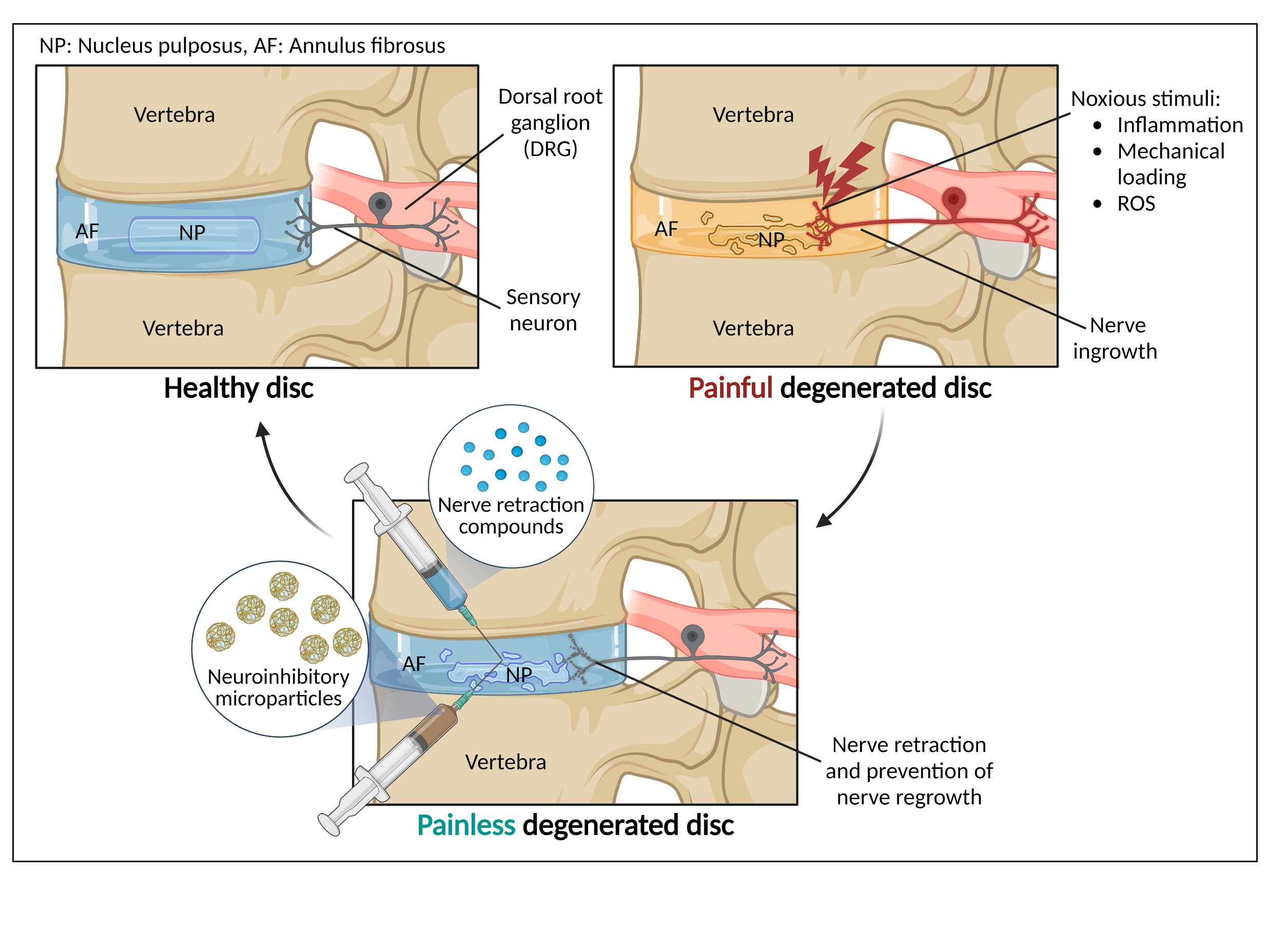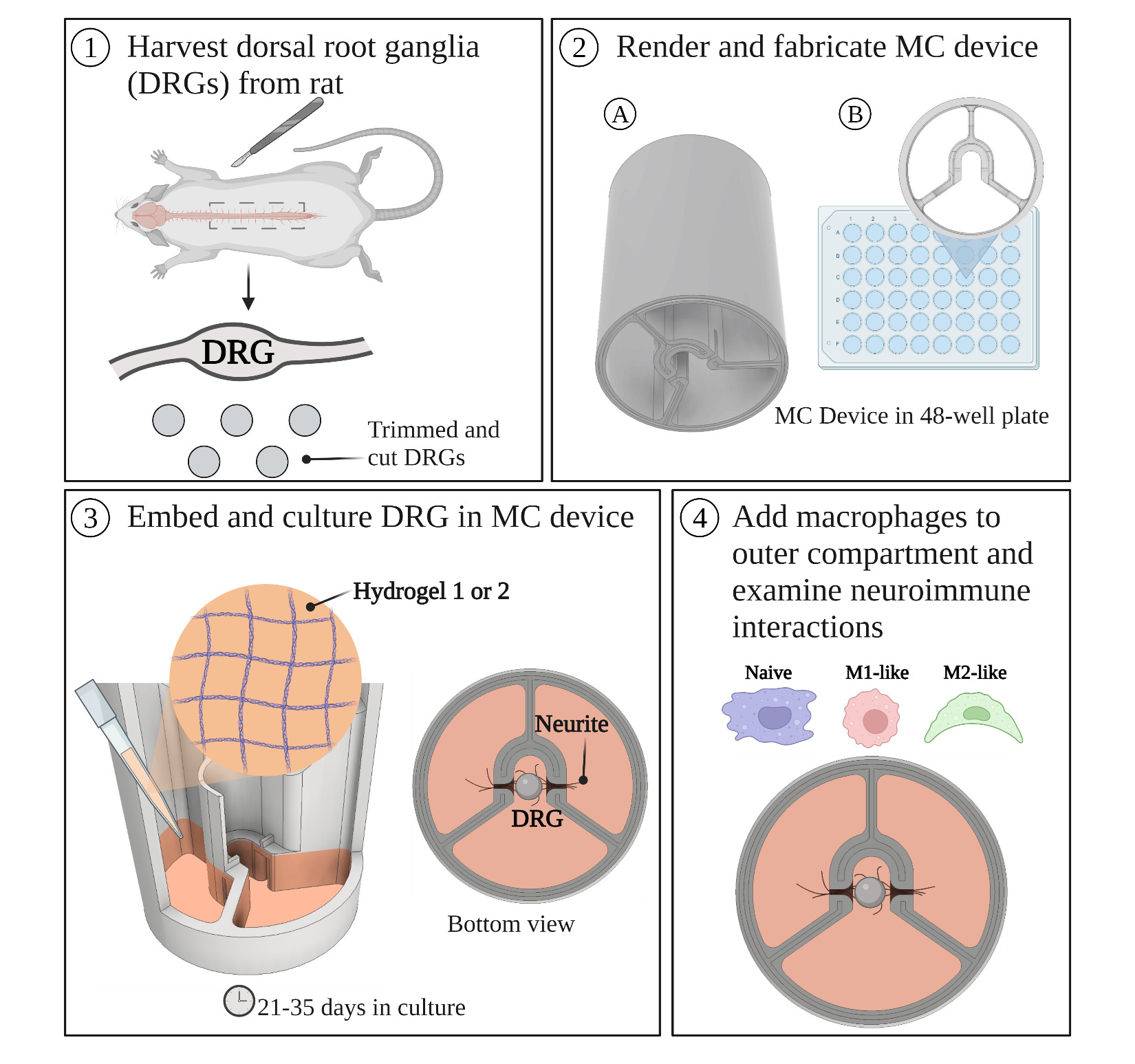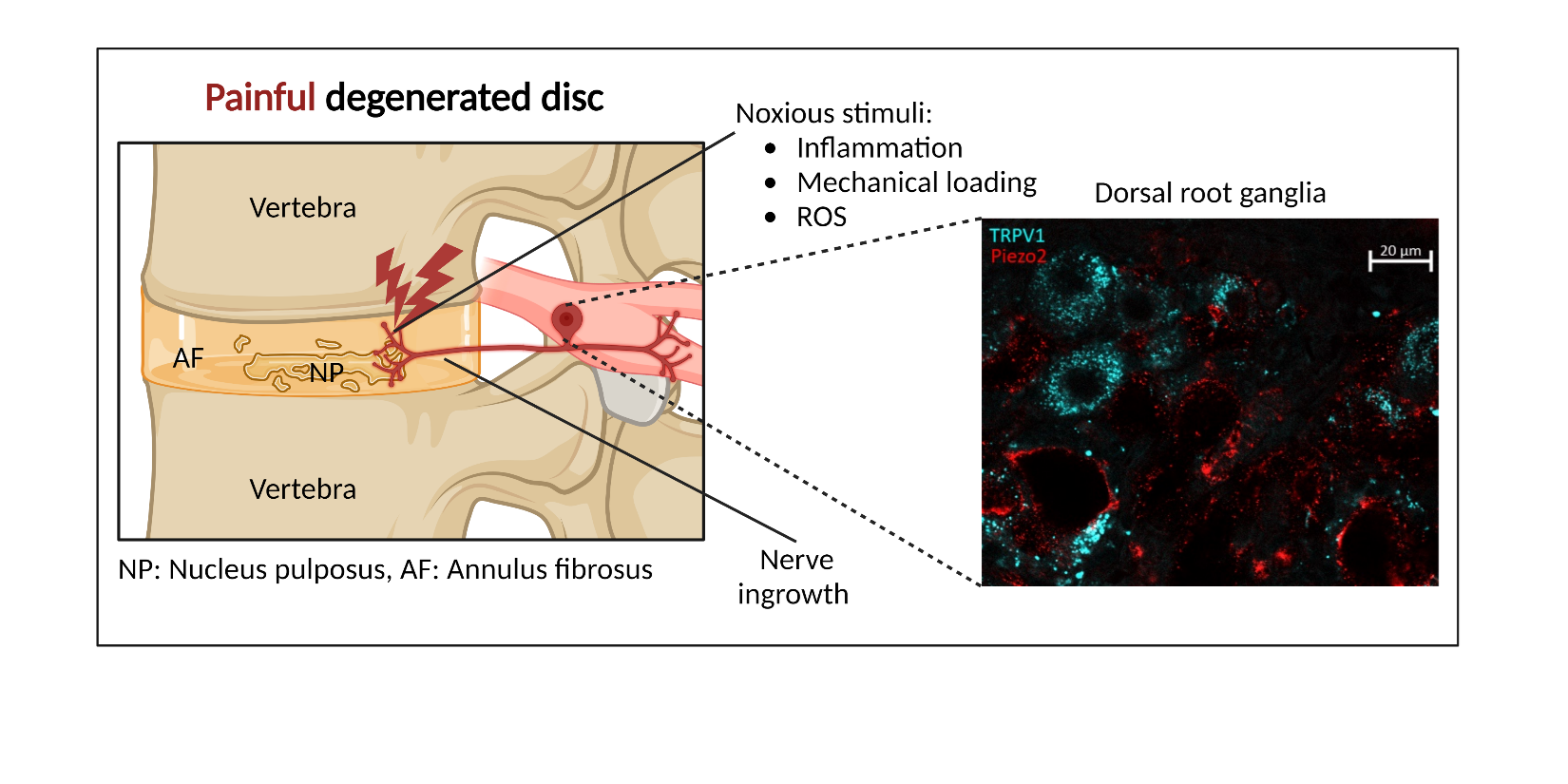ONE Lab Research Interests
- Low back pain and osteoarthritis
- Biomaterials – hydrogels, microparticles, drug delivery systems
- Animal models of pain and novel behavioral assessments
- Neural engineering approaches to treat pain
- Controlled release of antioxidants and anti-inflammatories
Current Projects
1) Developing novel therapeutics to cause axonal dieback and preventing regrowth, thereby alleviating low back pain
In degenerated discs, sensory nerves sprout into the previously aneural healthy disc. Stimulation of nerves by mechanical and chemical stimuli lead to pain. Our goal is to engineer nerve-targeting drugs and biomaterials to cause axonal dieback and prevent further regrowth in the disc as an alternative therapeutic for disc-associated low back pain.

2) Building in vitro test beds to characterize neuroimmune interactions in pain
Neuroimmune interactions are thought to be a major player in sensitization and stimulation of nerve fibers in chronic pain. We have created a multi-compartment set-up to allow 3D isolated culture of dorsal root ganglia and their nerite projections. Using this model, we are able to study neuroimmune interactions between nerites and various immune cell types.

3) Determining the role of mechanics and inflammation in a rat model of discogenic low back pain
Mechanical loads and inflammation are both present in discogenic low back pain, however their exact roles remains unknown. The goal of this project is to use in vivo models of discogenic pain to parse the contributions of inflammation and mechanical loading in pain onset and chronicity.

4) Characterizing the role of the gut microbiome in chronic low back pain
5) Early intervention to regenerate the disc using decellularized porcine tissue to modulate the immune system and help rejuvenate cells
